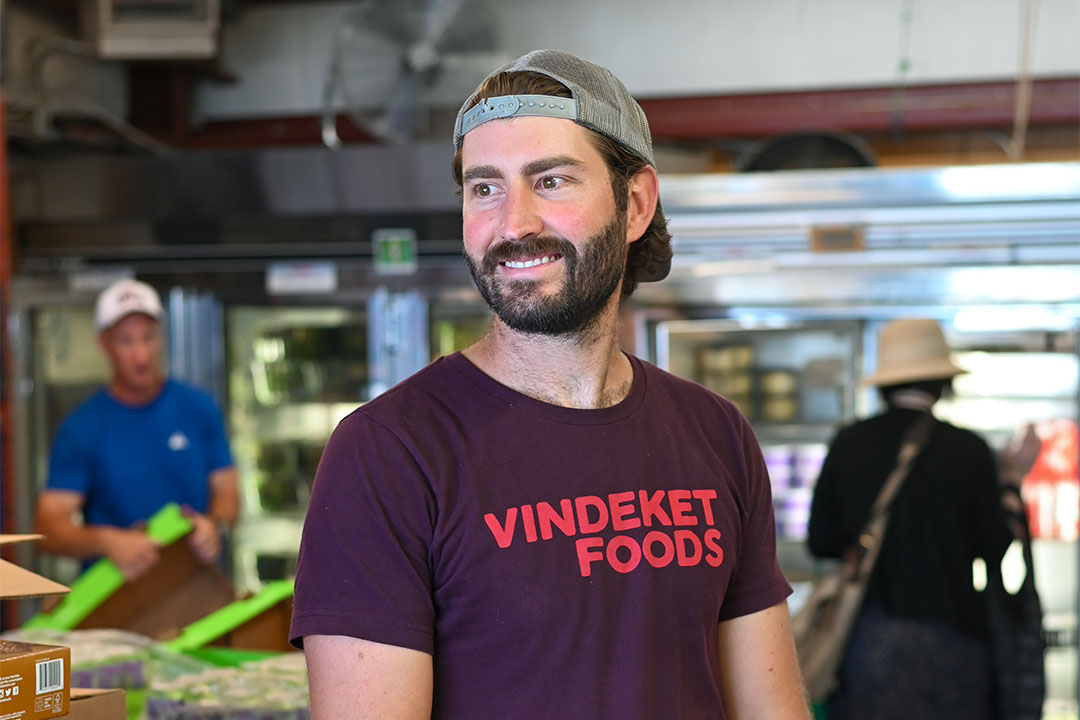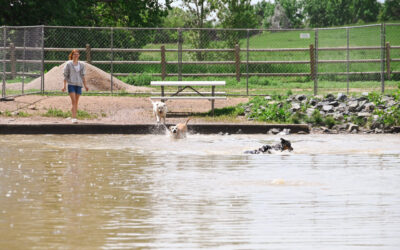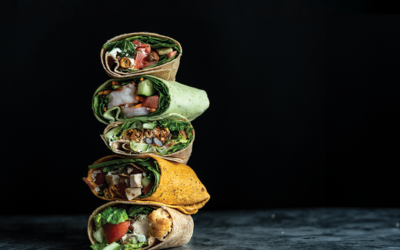Nathan Shaw opened the doors to Vindeket Foods in 2017 as a seasoned dumpster diver and farm volunteer. He hated seeing the sheer amount of waste in the world and had spent years rescuing perfectly good food. Vindeket would be his way of sharing it with others.
His goal was to provide a place for grocery stores, restaurants and distribution companies to unload excess food. He and his “service participants” (Shaw’s word for volunteers) would even go pick it up. They’d give it to the public free of charge, though Shaw would happily accept donations to keep the lights on.
“We serve everyone,” he says. “We don’t ask people whether they’re in need or anything like that. It’s a lot of people who care about the environment and want to help one another.”
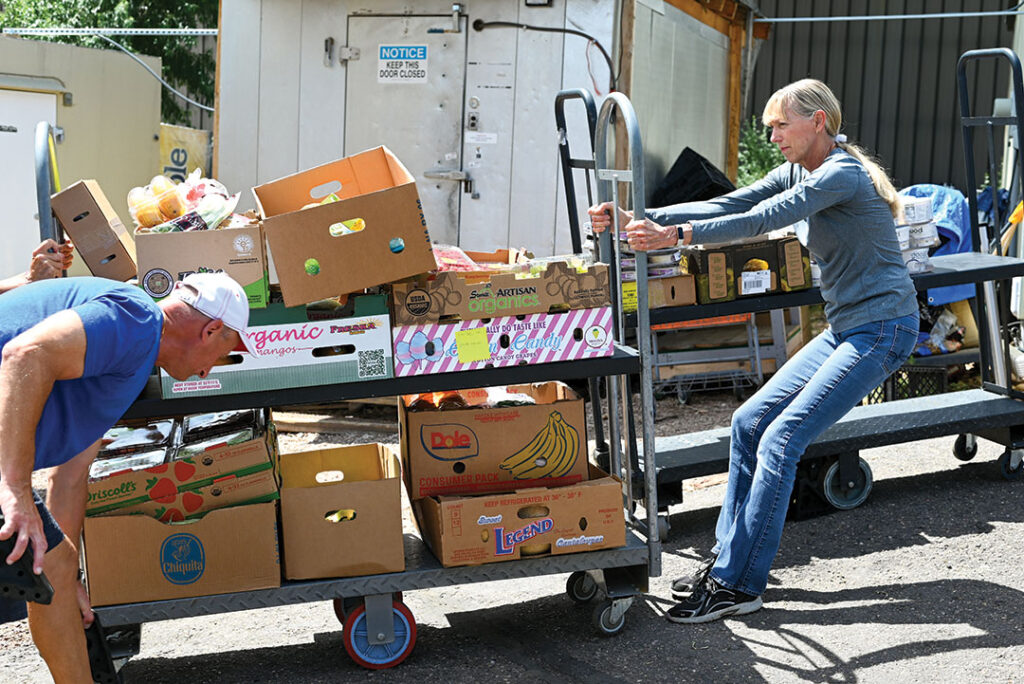
Volunteers unloading produce from a semi-truck delivery. Photos by Jordan Secher.
Now, pallets of food keep coming in, but the shelves are often half empty.
Shaw is in desperate need of more volunteers to unload trucks and stock the shelves. But he also faces another dilemma: The small warehouse in east Fort Collins isn’t nearly big enough to accommodate the amount of daily foot traffic.
There’s almost always a line of customers wrapped around the building, even on hot summer afternoons. Volunteers limit the number of customers inside to minimize crowding and, more importantly, give them a chance to restock.
“It’s a constant flow of people that’s hard to keep up with,” Shaw says as a new group funnels through the door. “Our service participants are always buzzing around.”
The space is organized in sections, just like any other market. There’s a dry goods area at the front with shelves of sauces and broths, and next to it is a table with single items, like granola bars, bags of chips and packets of trail mix. There are racks of baked goods as well as refrigerators and freezers containing meats, dairy products and bulk items. There’s even a vegan-friendly fridge with plant-based milk and yogurt.
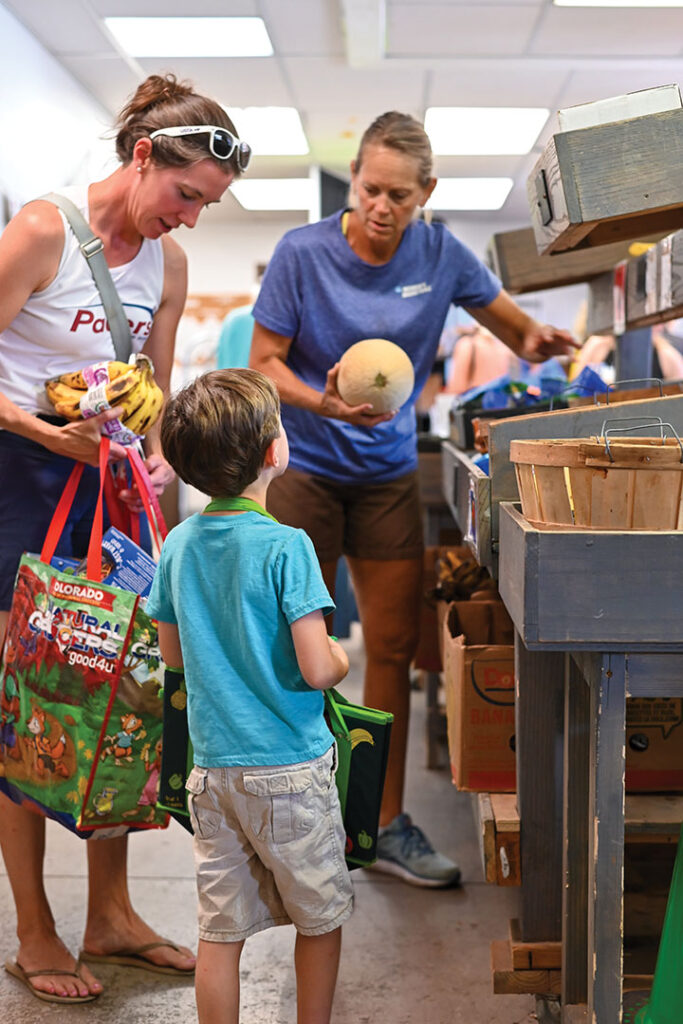
Customers grocery shopping.
In the middle of the market is a produce section. Most of the fruits and veggies are simply excess from grocery stores, but others aren’t quite as fresh. If a head of romaine lettuce starts to wilt, for example, volunteers remove the outer layer of leaves before putting it on the shelf. They’ll sometimes receive a carton of strawberries with one or two moldy ones that they remove (as well as the surrounding ones), but the rest of the package is perfectly fine.
“My goal is to make it look as nice as a grocery store,” says Shan Desilva, a volunteer who got involved with Vindeket after learning how much food Americans throw away every year. That’s nearly 40 percent of all food, according to Feeding America.
A lot of that waste has to do with the general public’s misunderstanding of food labels and proper food storage, Shaw says, which is why he posts informational resources around Vindeket. Some of the items are past their “best by” dates, but he says those dates hardly ever indicate food safety. They’re really a measure of when the product may be “a little off” in terms of taste or texture.
The products also vary based on the time of year and what’s donated, so you might not find the same things twice. And it goes fast: Shaw says they moved 227,000 pounds of food in June and 136,765 pounds in July. Vindeket serves 500-1000 people per day, not including the six local nonprofits they send food to every week.
When truckloads of items are delivered, they’re sorted and stored in a walk-in cooler, walk-in freezer or one of the two climate-controlled semi-trailers out back. Volunteers then stock items in the order they’re stored to ensure they’re cycled through as quickly as possible. But more trucks keep showing up.
“As we rescue more food and get more people involved, we’ll have to grow,” Shaw says, noting that he’s currently looking for a bigger location. “We’ll also need more ex-truck drivers to go pick up food as well as someone who can repair forklifts. We’re constantly fixing up our equipment, so if anyone wants to donate their repair services or get rid of an old truck, that would help us a lot.”
Another way to support the cause is by donating money or becoming a corporate sponsor. Shaw calls Vindeket a “no-cost market,” but shoppers have the opportunity to donate at the check-out table if they want to. And most of them do. Shaw says they see what it costs to run an operation like this, and they want to help.
Vindeket is only open three days per week: Tuesdays from 2-7 p.m., Thursdays from 9 a.m.-1 p.m. and Sundays from 12-3 p.m. With more volunteers and a bigger space, Shaw says the food rescue would be able to stay open longer and serve the community on a larger scale.
“Fort Collins has a lot of people who care and want to get involved,” he says. “It’s a cool concept to get behind: We don’t want to throw away food, so we’ll take the time to sort through it and give it to someone who will use it.”


